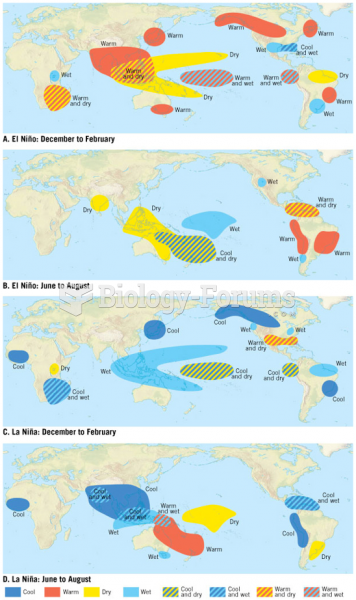|
|
|
Automated pill dispensing systems have alarms to alert patients when the correct dosing time has arrived. Most systems work with many varieties of medications, so patients who are taking a variety of drugs can still be in control of their dose regimen.
Approximately 25% of all reported medication errors result from some kind of name confusion.
There are more sensory neurons in the tongue than in any other part of the body.
About 3.2 billion people, nearly half the world population, are at risk for malaria. In 2015, there are about 214 million malaria cases and an estimated 438,000 malaria deaths.
Studies show that systolic blood pressure can be significantly lowered by taking statins. In fact, the higher the patient's baseline blood pressure, the greater the effect of statins on his or her blood pressure.
 Impacts of glaciers on landscapes can be seen as (a) a U-shaped valley in Labrador, (b) a drumlin fi
Impacts of glaciers on landscapes can be seen as (a) a U-shaped valley in Labrador, (b) a drumlin fi
 The image formed on the retina is inverted. The brain rights the image as part of the interpretation
The image formed on the retina is inverted. The brain rights the image as part of the interpretation





